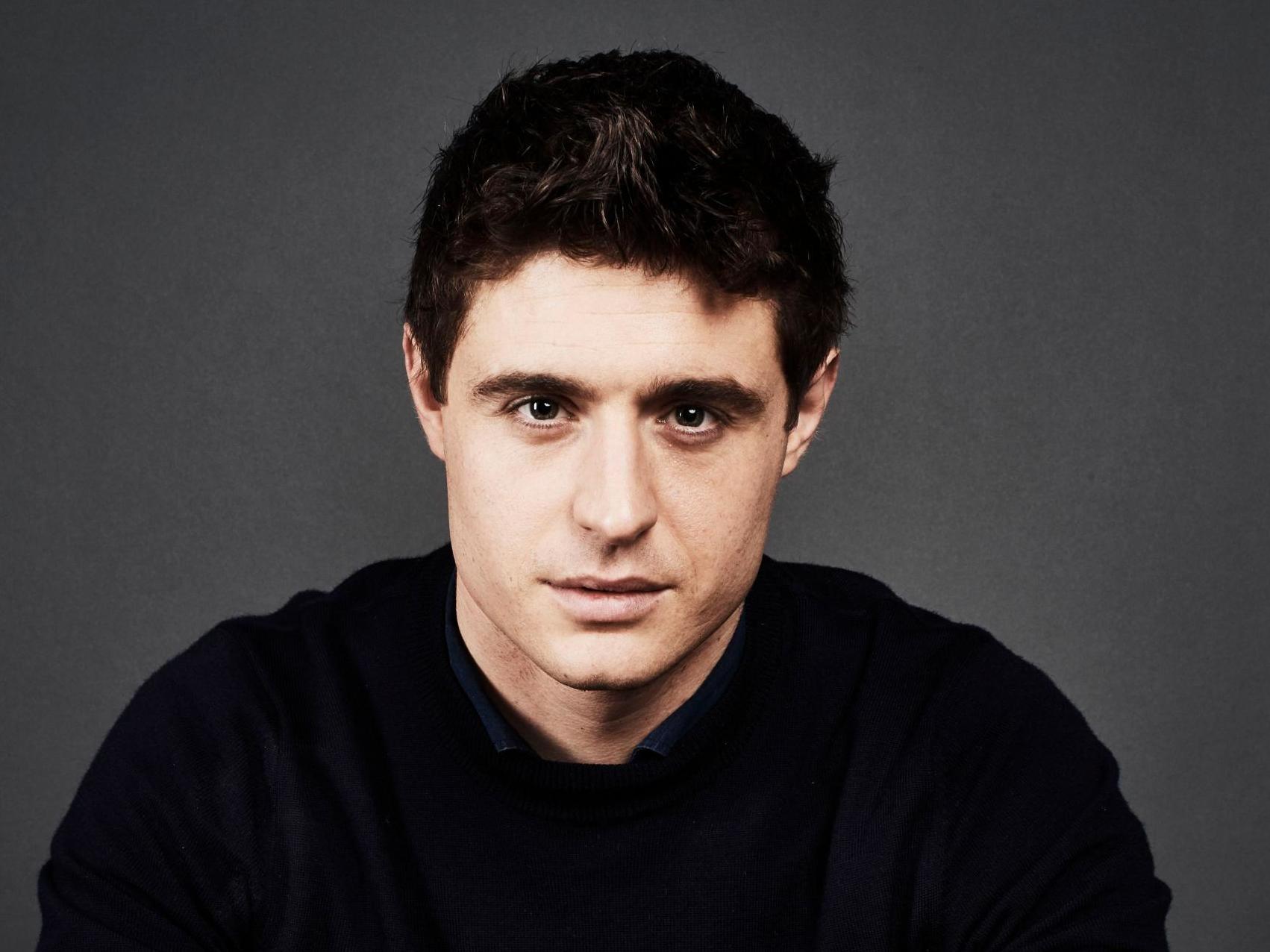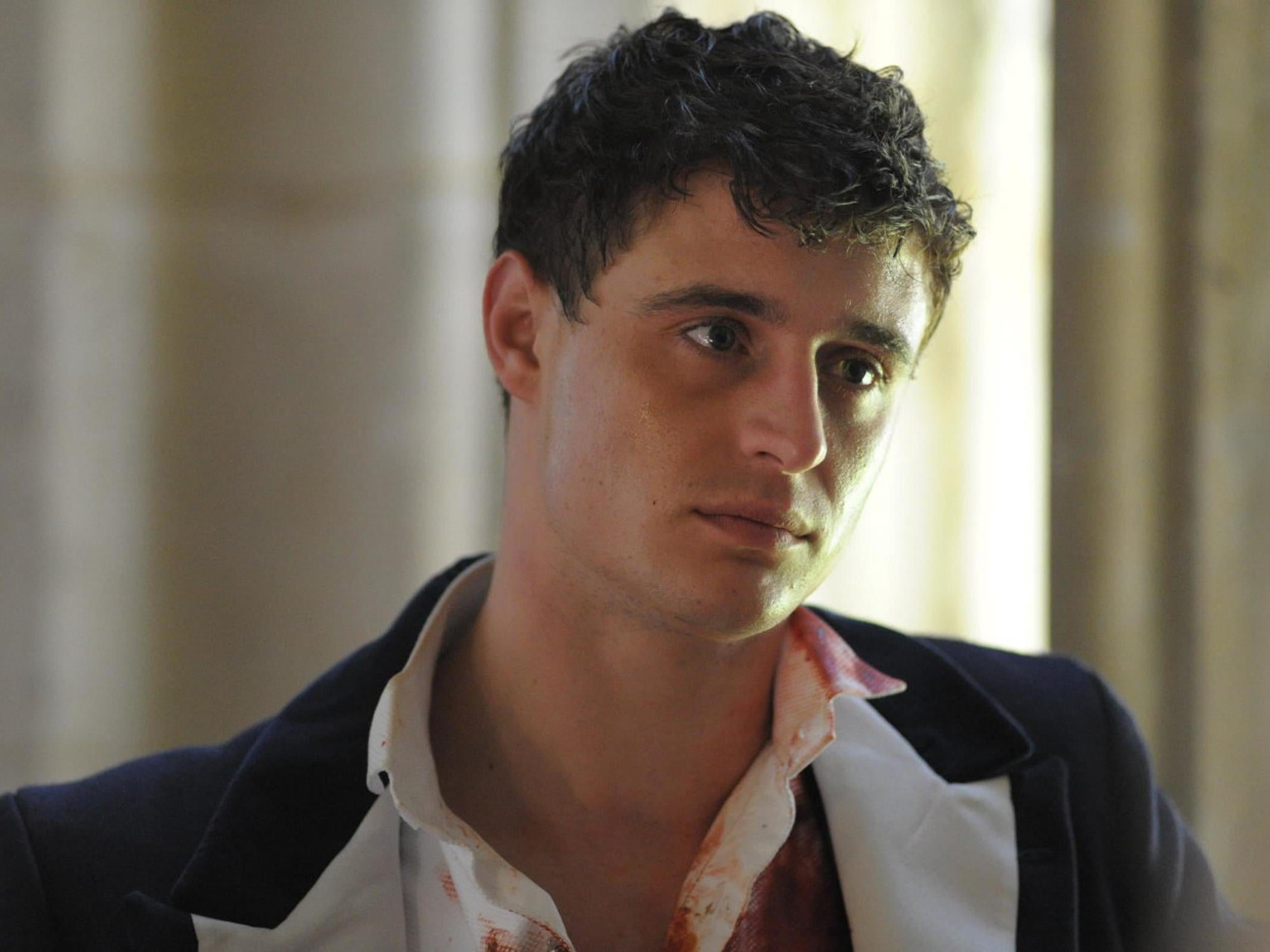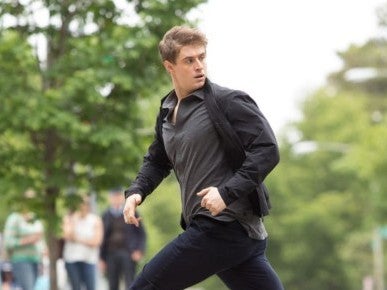Max Irons: ‘Cancel culture is a problem’
The star of Sky One’s ‘Condor’ talks to Annie Lord about Boris Johnson, Harvey Weinstein, examining the politics of the roles you take on and missing out on parts ‘for not being good-looking enough’


Your support helps us to tell the story
From reproductive rights to climate change to Big Tech, The Independent is on the ground when the story is developing. Whether it's investigating the financials of Elon Musk's pro-Trump PAC or producing our latest documentary, 'The A Word', which shines a light on the American women fighting for reproductive rights, we know how important it is to parse out the facts from the messaging.
At such a critical moment in US history, we need reporters on the ground. Your donation allows us to keep sending journalists to speak to both sides of the story.
The Independent is trusted by Americans across the entire political spectrum. And unlike many other quality news outlets, we choose not to lock Americans out of our reporting and analysis with paywalls. We believe quality journalism should be available to everyone, paid for by those who can afford it.
Your support makes all the difference.Maybe it runs in the family… Max Irons may not be quite as outspoken as his famous father – he’s the son of Jeremy Irons and Sinead Cusack – but over the course of a 45-minute video call, he happily gets stuck into Harvey Weinstein, Philip Green and Boris Johnson, privileged British politicians in general, cancel culture and American shows that have an unquestioning attitude towards US government policy.
The latter is relevant because Irons is reprising his role as on-the-run CIA data analyst Joe Turner for the second series of Sky’s thriller series Condor. It’s a taut thriller where staying alive is not to be counted on. For someone who looks like James Bond, though, Irons isn’t as comfortable around guns as you might think. “I instantly started sweating and shaking,” the 34-year-old tells me when I ask about the weapon training he went through before shooting. “Every inch of wall space was covered with high calibre machine guns. I was handed an M16 by this guy whose neck was thicker than my torso. I was a complete mystery to him. He looked embarrassed for me.”
It’s strange because Irons looks like precisely the sort of square-jawed, broad-shouldered action man type who would be in his element shooting bullets in the movies. “It always gets a bit cringy when you start talking about yourself in those terms,” he says to me after I make this point, his face visibly recoiling. “It’s safe to say that’s not me and I’m not very good at that stuff.”
Given that Irons is the offspring of acting royalty, you might not expect him to be quite so modest. Even though his parents are “undeniably better and more experienced at what they do”, Irons calls the experience of receiving drama lessons from Mum and Dad “hyper-irritating”. Lucky, then, that he got into the Guildhall School of Music and Drama. After a stint as a Burberry model, Irons’s first big acting break came in 2013 when he was dubbed “the new Robert Pattinson” for his role in the adaptation of the Stephenie Meyer novel The Host. Not everyone was a fan though: Irons was turned down from a major film franchise for “not being good looking enough”.
This might seem strange feedback for someone who looks like Prince Charming incarnate but, Irons insists, “in modelling, they do a hell of a lot of Photoshop to get you looking like that”.
Thankfully, his combination of sky-blue eyes and dirty blond hair proved sufficient for other casting directors, so there followed a role as Edward IV in the BBC’s lavish 2013 history epic The White Queen. And he was a sensitive outlier in The Riot Club (2014), the film of Laura Wade’s hit stage play Posh – a gruesome glimpse of the depravity that occurs when elitist Oxford boys get drunk on champagne and adopt a mob mentality.
Fortunately for gun-shy Irons, his leading role as Joe in Sky One’s Condor – the second series airs tonight from 9pm – sees him running from bullets as opposed to firing them. In the show’s first season, the idealistic data analyst goes into hiding after his entire team is assassinated by a terror organisation. He quickly finds himself at the centre of a US government conspiracy, one which sees him kidnapping women, losing friends, and cracking cryptic codes. At the beginning of season two, Joe is disillusioned with the secret service, that is until a mysterious Russian intelligence officer asks for his help.
Irons was drawn to Condor’s script in part because of the show’s honest interrogation of the failings of America’s aggressive foreign policy after 9/11. “As an actor, when you sign on to a show like this, it’s inherently political. So you’ve got to ask yourself: can you stand by what it’s saying? There are some shows – and I won’t mention any names – that are all very in keeping with like the Patriot Act.” (Passed 45 days after terrorists attacked the Twin Towers, the act hugely increased the US government’s powers to surveil its own citizens in the interests of national security.) “You don’t want to associate yourself with something like that. What I liked about our directors is they were very open-minded about the true history of anti-terror operations,” Irons says. “They ask a lot of questions from their audience.”
I want to ask him about The Riot Club. It is widely regarded as a thinly disguised take on Oxford’s infamous real-life Bullingdon Club, whose past members include David Cameron, George Osborne and Boris Johnson. Its initiation ceremony reportedly requires the inductee to burn a banknote in front of a homeless man. Did featuring in the film make Irons feel differently about the politicians in power? “Yeah, I think the defence of ‘Oh I was young’ is not a good one,” he says. “You are clever, you can see that from your own admission into Oxford, so you should have a moral compass. And the fact that these guys in power now were part of this club – and did do some pretty atrocious things and right after transitioned into high offices, you know, whether it be corporate, or public. It’s very concerning.”

Watch Apple TV+ free for 7 days
New subscribers only. £8.99/mo. after free trial. Plan auto-renews until cancelled

Watch Apple TV+ free for 7 days
New subscribers only. £8.99/mo. after free trial. Plan auto-renews until cancelled

Irons mentions Dominic Cummings’s recent trip to Barnard Castle as evidence that politicians tend to get away with things that other people don’t. “When you watch Boris on Prime Minister’s Questions, his defence to mistakes he’s made is often ‘that’s not true’. It speaks to a mindset of privilege, and you know, his accrued experience of getting away with things. Throwing charm and bluster at the problem to work your way out of it. It doesn’t quite work when you’re running the country.”
As well as playing them on screen, Irons has encountered his fair share of monstrous men in real life. In order to land the role of Jewish refugee Fritz Altmann in Woman in Gold, Irons had to meet Harvey Weinstein. After an overwhelmingly gushing welcome, the now-convicted sexual predator handed Irons a page-long monologue in Austrian – a language Irons doesn’t know how to speak – and told him to learn it ready for an audition the following day. “To anyone else you’d say ‘Jesus Christ, give me a couple of days’ but I did it because it was him and he’s frightening. It was an insight into his mentality.” A gruelling all-nighter spent listening to Google Translate pronounce each word of the monologue followed, but Irons did land the part.
On the topic of domineering men, Irons remembers turning up to cut the ribbon at one of billionaire Topshop owner Philip Green’s events (before any sexual harassment and bullying allegations – which he’s since denied – had been levelled against him). “I saw him ask this young assistant he had for a pair of those large, comically oversized pairs of scissors. He was shouting at her in front of everyone and the girl nervously asked: ‘Where do I get a large pair of scissors from?’ And he just told her to ‘get out of my sight’.” Irons pauses and sighs. “That’s how it is with those sorts of people.”

As our conversation comes to a close, I ask him about his father. The older Irons has caused controversy by saying what he thinks – and apologised his way out of it – a number of times. Lynn Barber once said that interviewing him made her want to “boil him in oil”. “He’s got a little softer in his old age,” Irons says, smiling. “But you know he’s outspoken. A lot of the problems we’re coming across as a society, they do require frank and honest conversations. And you’re not going to agree with everybody nor should you.”
For the younger Irons, in many ways, not talking is just as bad as talking about the wrong thing. “Cancel culture is a problem because if you’re terrified of voicing your intentions or contentions you won’t make any progress,” Irons says. “Speaking out is part of working out an equation to achieving the solution and you’re afraid to do so for fear of cancelling or social media shaming, then we’ll just never get to the solution.” He pauses and laughs. “Even though Dad has put his foot in his mouth on occasion.”
It doesn’t seem as though this Irons will put his foot in it quite so much as his Dad has done. He’s a real gentleman, one who says thank you at the end of the Zoom call, and then about seven times more just in case the first few went unnoticed. Because he’s polite, and because the kids of famous people don’t always act like the kids of famous people.
Condor returns on Wednesday on Sky One at 9pm
Join our commenting forum
Join thought-provoking conversations, follow other Independent readers and see their replies
Comments